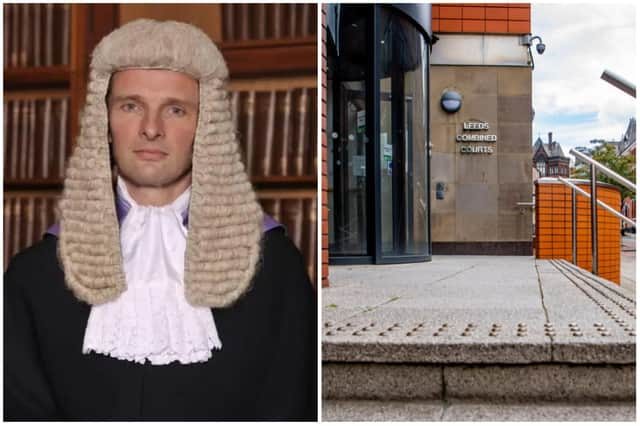'We'd welcome cameras in court': City's top judge backs TV coverage for high-profile cases


In an historic legal first, a sentencing hearing was recently broadcast at the Old Bailey in London involving 25-year-old Ben Oliver, who was jailed for manslaughter.
A century-old law that bans recording in court has been relaxed for the purpose of allowing the public easy access to justice being delivered.
Advertisement
Hide AdAdvertisement
Hide AdTop judges across England can now receive applications to film, including the Recorder of Leeds, Judge Guy Kearl QC.
Speaking to the Yorkshire Evening Post, he said: “A number of us have been trained to conduct hearings in which the sentencings can be filmed, but only high court judges and circuit judges, because we do the most serious cases in general terms.
“In terms of its usefulness, we believe in open justice. There are cases in court of huge importance and although the doors are open, very few people attend.
“If this allows a greater transparency to what we do and the public are able to observe the proceedings, then it has to be a good thing.
Advertisement
Hide AdAdvertisement
Hide Ad“It’s early days, and we have not had any applications so far, but I suspect there will be applications for high-profile cases.”
Barristers, journalists and defendants held on remand are already permitted to join full court proceedings via the Cloud Video Platform (CVP) app, which works like Zoom.
Under the law change, which came into effect in 2020 but was delayed by the pandemic, the judge’s sentencing remarks in crown courts can now be broadcast to the general public.
Only approved media parties can apply to film – including the BBC, ITN and Sky – and it must be agreed by the Lord Chancellor.
Advertisement
Hide AdAdvertisement
Hide AdThe camera must be fixed on the sentencing judge only and there is a 10-second time lag so broadcasts can be cut if required.
There are no plans to record or televise the prosecution or the defence’s case.
Members of the public are still not permitted to record or take photographs within the court building, and run the risk of being locked up for contempt of court.
With the introduction of TV cameras, there are obvious comparisons to the United States where full court proceedings can be televised.
Advertisement
Hide AdAdvertisement
Hide AdIt often leads to exhaustive media coverage fuelled by public opinion.
However, stringent contempt of court laws in the UK remain in place to prevent a jury from being swayed by external coverage, thus limiting the inclusion of cameras.
Judge Kearl said: “I think our justice system has the balance right in that there is a solemnity for the proceedings, and that needs to be maintained.
“If it’s an appropriate case, we will grant it, people should know what’s going on in their crown courts because transparency is always important.
Advertisement
Hide AdAdvertisement
Hide Ad“Doing justice in private, generally speaking, is not a good thing.”
But without the context of the trial beforehand, Judge Kearl is quietly cautious about who would be compelled to watch, although admits it gives people the choice.
“I do not know how many people will be interested in listening to the sentence remarks, law students might find it interesting, or the police, but I don’t know if general public will want to tune in,” he added.
